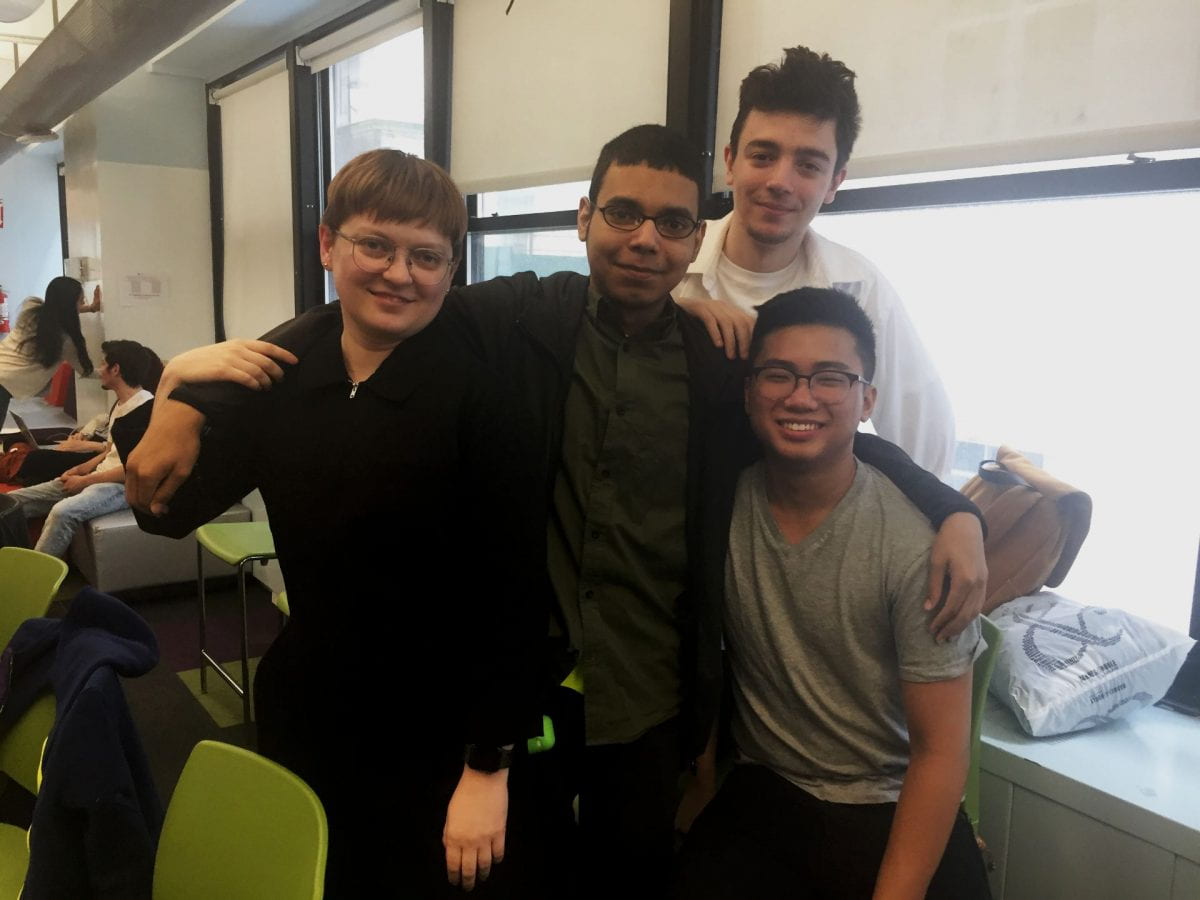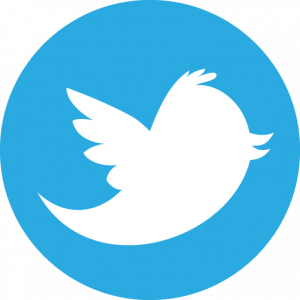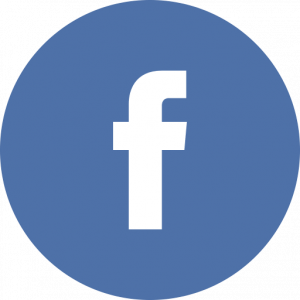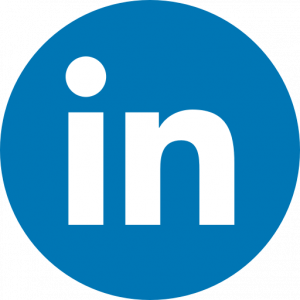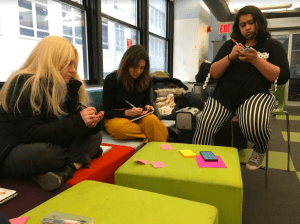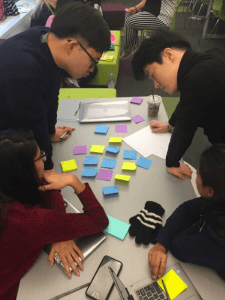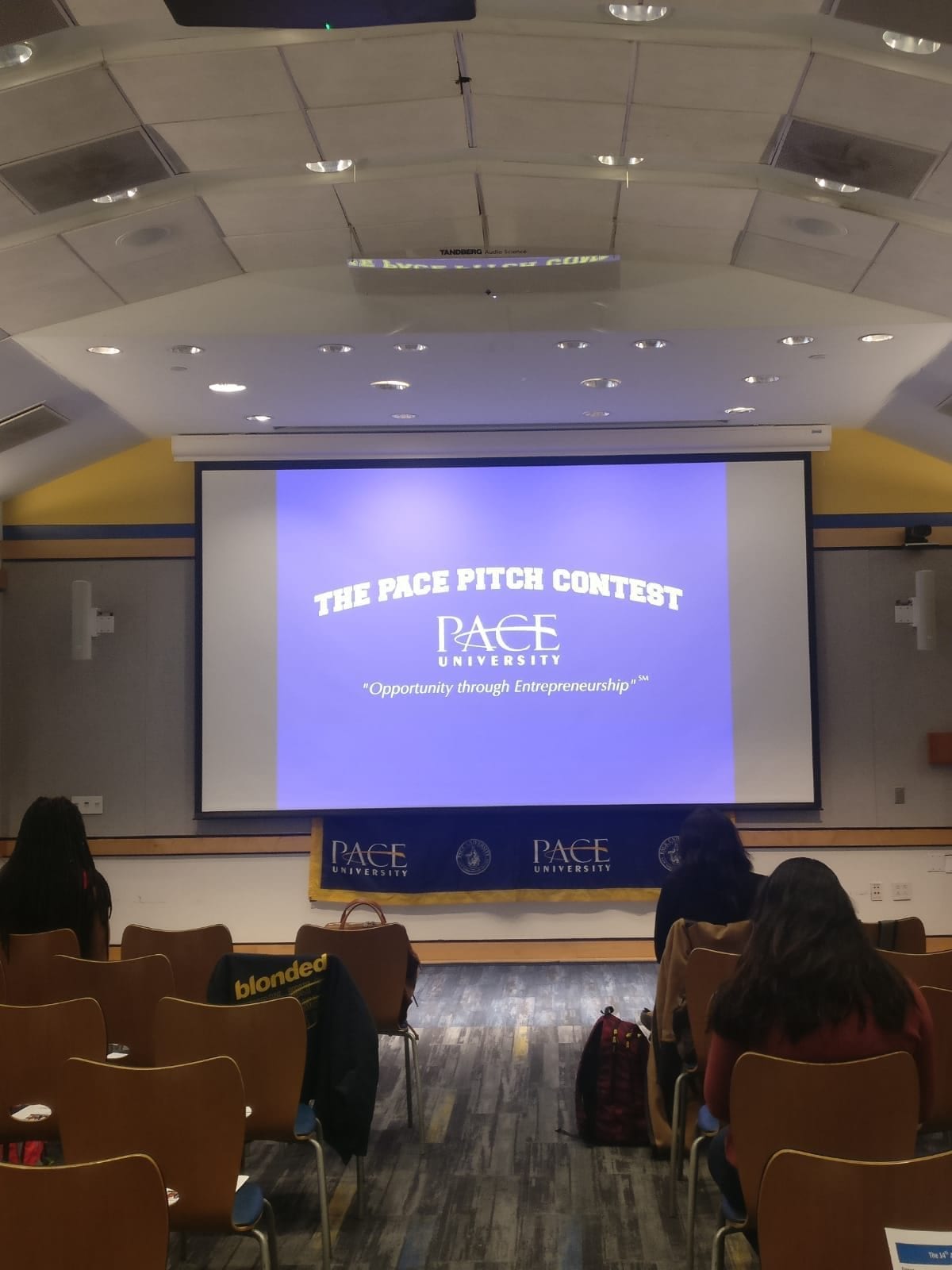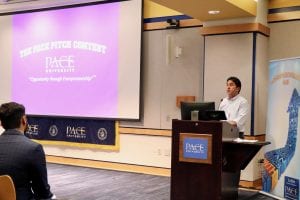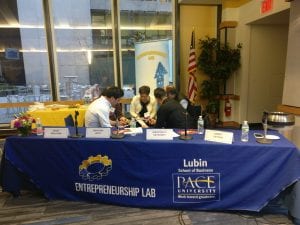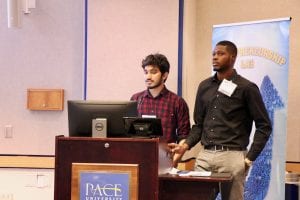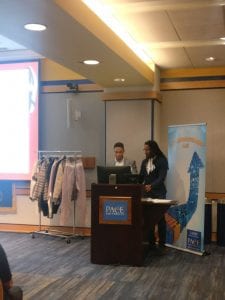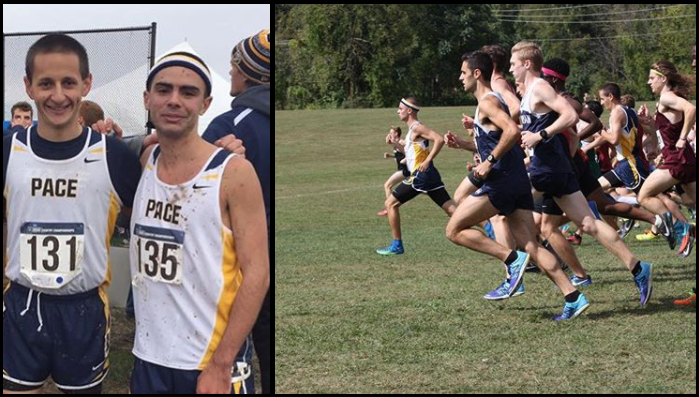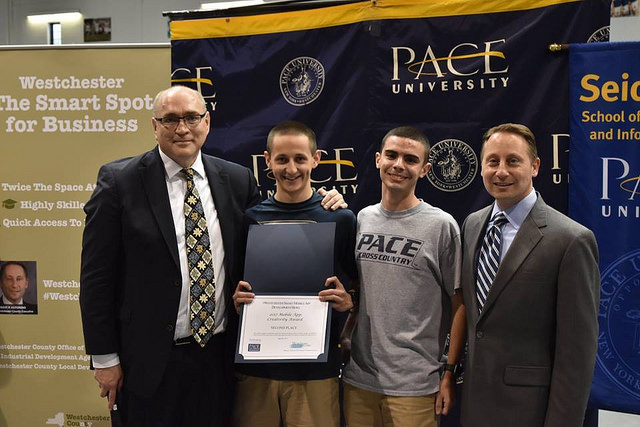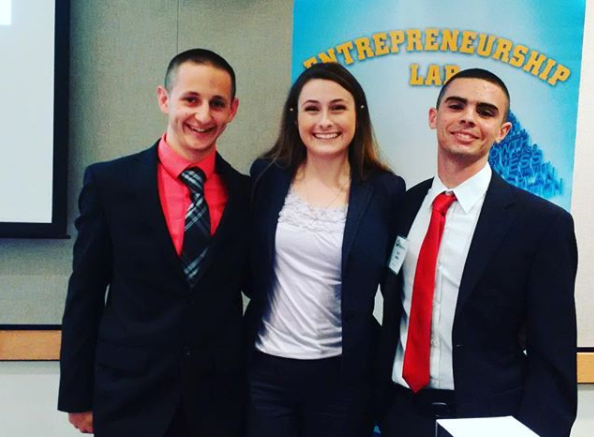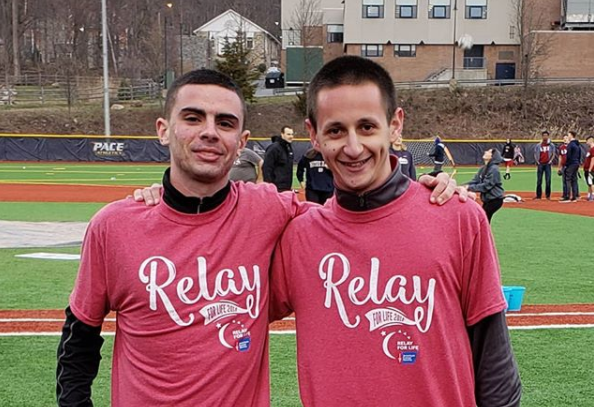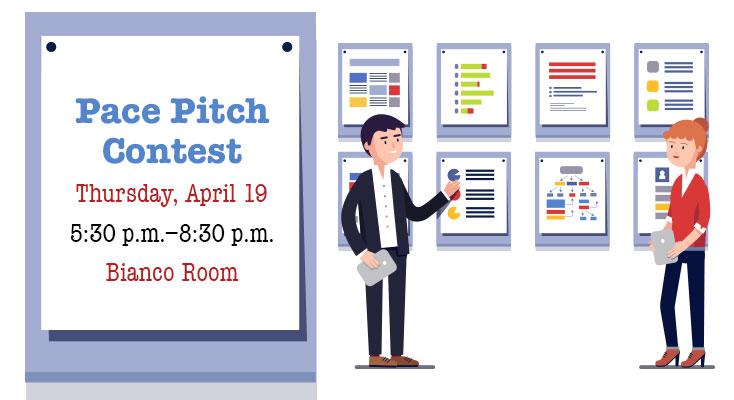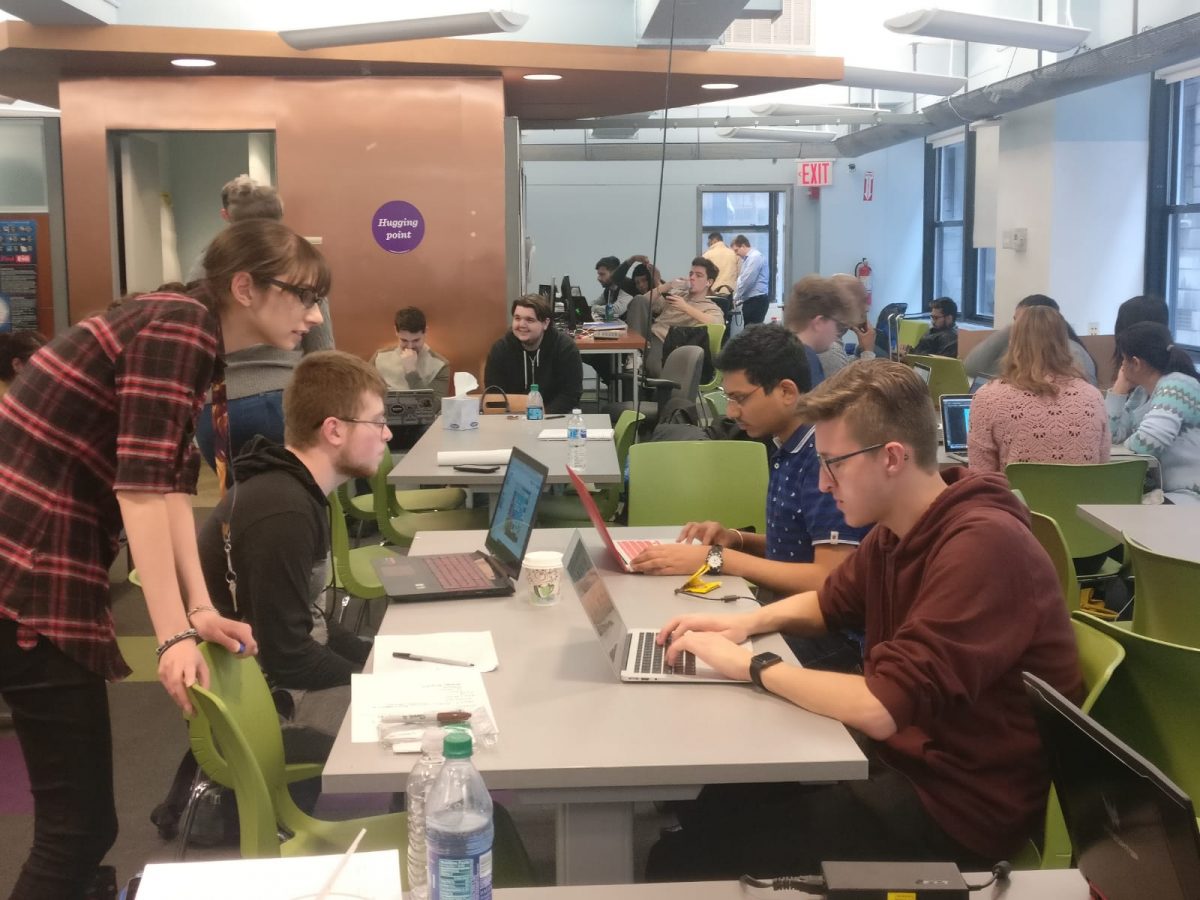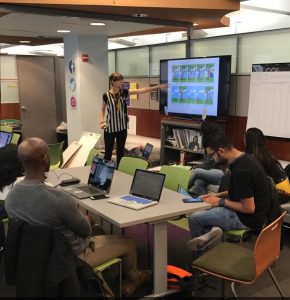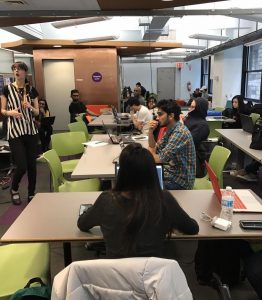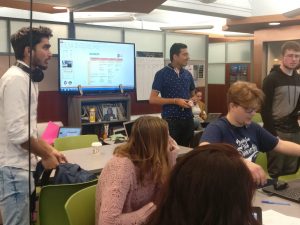While finals can be a stressful time for students each time they come around, they can also be the perfect time to work with classmates on projects they feel passionate about. The season for cramming and test taking can also be an opportunity for collaborative innovation. When the Software Engineering (CS389) class presented their final projects in the Seidenberg Lounge on May 15th, it seemed as though that innovative energy was thriving.
The leading professor for the class, Dr. Shahed Mustafa, reviewed the team projects with assistance from Professor Avery Leider and Dr. Christelle Scharff. The eight groups of undergraduate students presented software applications they created to tackle real-world problems and generate an environment of positivity.
The students worked with Android Studio, Photoshop, Firebase, GitHub, and numerous other applications to bring their ideas to life. The teams created apps in a Scrum framework starting from an idea. Their ideas ranged from a game featuring adorable bartending kittens to a chat room app that helps groups of friends and coworkers find the perfect meeting location. After their ideas were solidified, student groups identified their backlog (the load of work to be completed in the future) and completed a series of three sprints.
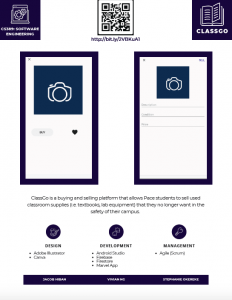 The application created by Jacob Hiban, Vivian Ng, and Stephanie Okereke titled, ClassGo, is a buying and selling platform tailored to Pace students. Users can buy or sell used classroom supplies like textbooks, lab materials, and more. The application features a homepage, search bar, selling and buying pages, and a capability to “favorite” the items the user likes best. Future improvements for the application include an updated user interface, homepage, chat, commenting section, and notification settings. These computer science mavens hope that their app can one day be a service that Pace students will choose to use over eBay, Mercari, or even Poshmark.
The application created by Jacob Hiban, Vivian Ng, and Stephanie Okereke titled, ClassGo, is a buying and selling platform tailored to Pace students. Users can buy or sell used classroom supplies like textbooks, lab materials, and more. The application features a homepage, search bar, selling and buying pages, and a capability to “favorite” the items the user likes best. Future improvements for the application include an updated user interface, homepage, chat, commenting section, and notification settings. These computer science mavens hope that their app can one day be a service that Pace students will choose to use over eBay, Mercari, or even Poshmark.
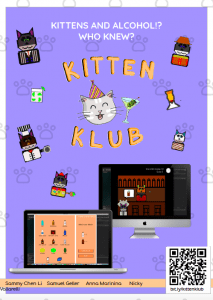 The makers behind Kitten Klub ask, “kittens and alcohol!? Who knew?” Well, they did! The application is a time management game set in the world of cats which was created by Samuel Gellar, Nicholas Vallarelli, Sammy Chen Li, and Anna Marinina. Targeted users play the game by creating drinks for the kittens they are bartending for. The game, which is only available for Apple devices at the moment, has nine levels that increase in difficulty.
The makers behind Kitten Klub ask, “kittens and alcohol!? Who knew?” Well, they did! The application is a time management game set in the world of cats which was created by Samuel Gellar, Nicholas Vallarelli, Sammy Chen Li, and Anna Marinina. Targeted users play the game by creating drinks for the kittens they are bartending for. The game, which is only available for Apple devices at the moment, has nine levels that increase in difficulty.
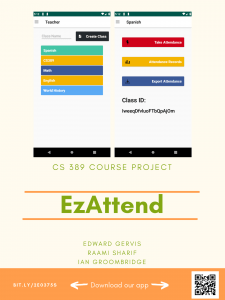 The goal of EzAttend is to simplify the attendance taking process. Contributors, Edward Gervis, Raami Sharif, and Ian Groombridge worked together to make a one tap attendance app using Bluetooth. The application allows the teacher to create a class and take attendance, while also allowing students to see their attendance record.
The goal of EzAttend is to simplify the attendance taking process. Contributors, Edward Gervis, Raami Sharif, and Ian Groombridge worked together to make a one tap attendance app using Bluetooth. The application allows the teacher to create a class and take attendance, while also allowing students to see their attendance record.
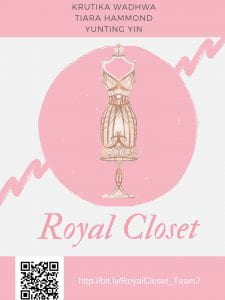 Royal Closet is tailored to the user. The fashion application captures user information, user market recycler view, avatar choice, and measurement comparisons to show the user what a chosen item of clothing could look like on their body by placing a version on their tailored avatar. Krutika Wadha, Tiara Hammond, and Yunting Yin designed this app to help individuals make fashion choices. They hope in the future to make it an inclusive e-commerce app with customizable avatars.
Royal Closet is tailored to the user. The fashion application captures user information, user market recycler view, avatar choice, and measurement comparisons to show the user what a chosen item of clothing could look like on their body by placing a version on their tailored avatar. Krutika Wadha, Tiara Hammond, and Yunting Yin designed this app to help individuals make fashion choices. They hope in the future to make it an inclusive e-commerce app with customizable avatars.
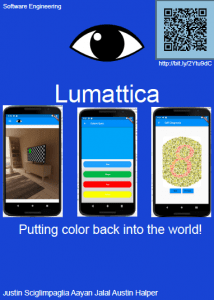 Lumattica is all about “putting color back into the world,” according to creators Austin Halper, Justin Sciglimpaglia, and Aayan Jalal. The app targets people who suffer from color blindness. The app works for both yellow-blue and red-green color confusion. Features include a field view, self-diagnosis, camera, and color quiz.
Lumattica is all about “putting color back into the world,” according to creators Austin Halper, Justin Sciglimpaglia, and Aayan Jalal. The app targets people who suffer from color blindness. The app works for both yellow-blue and red-green color confusion. Features include a field view, self-diagnosis, camera, and color quiz.
Lovescope: The Astrology Dating App
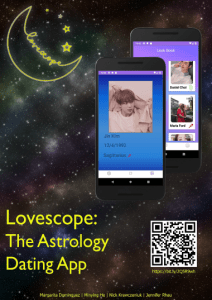 Lovescope: The Astrology Dating App is exactly what it sounds like. It’s a dating app specialized to each astrology sign. Creators Margarita Dominguez, Nick Krawczeniuk, Jennifer Rhau, and Minying He created the application to give users explanations of all planets, houses, and signs. The app integrates user profiles so users can create their own birth chart (gender options include non-binary) and uses a compatibility algorithm to see which users match together best!
Lovescope: The Astrology Dating App is exactly what it sounds like. It’s a dating app specialized to each astrology sign. Creators Margarita Dominguez, Nick Krawczeniuk, Jennifer Rhau, and Minying He created the application to give users explanations of all planets, houses, and signs. The app integrates user profiles so users can create their own birth chart (gender options include non-binary) and uses a compatibility algorithm to see which users match together best!
 Yuliya Daroshka, Ivan Tang, Brandon DeLuca, and Jeffrey Cruz are the minds behind translatAR: an app that has the potential to be a direct competitor to Google lens. Its target audience is English speakers who travel abroad each year. The straight forward visual translator app is capable of helping users find the correct word for any object they take a picture of in 26 languages!
Yuliya Daroshka, Ivan Tang, Brandon DeLuca, and Jeffrey Cruz are the minds behind translatAR: an app that has the potential to be a direct competitor to Google lens. Its target audience is English speakers who travel abroad each year. The straight forward visual translator app is capable of helping users find the correct word for any object they take a picture of in 26 languages!
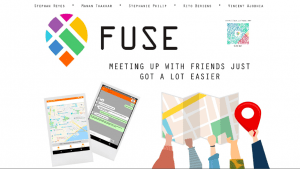 “Meeting up with friends just got a whole lot easier,” according to the minds behind Fuse. The app helps groups meet up at a central and convenient location for all users. Creators Stephan Reyes, Manan Thakkar, Stephanie Philip, Kito Beriens, and Vincent Ajodhia created this app with multiple APIs to incorporate map and group-chat features. Whether a group wants to meet at a restaurant, bar, or park, this app helps them find the best option. This app solves all of those “where should we meet” problems by giving a solution that fits everyone’s needs.
“Meeting up with friends just got a whole lot easier,” according to the minds behind Fuse. The app helps groups meet up at a central and convenient location for all users. Creators Stephan Reyes, Manan Thakkar, Stephanie Philip, Kito Beriens, and Vincent Ajodhia created this app with multiple APIs to incorporate map and group-chat features. Whether a group wants to meet at a restaurant, bar, or park, this app helps them find the best option. This app solves all of those “where should we meet” problems by giving a solution that fits everyone’s needs.
These projects are all products of hard work and collaboration. Make sure to check out each app to fully experience how they function overall by scanning the QR codes on each poster. We’re proud of these software engineering students and what they created in just one semester.
Follow us on social media for updates!


